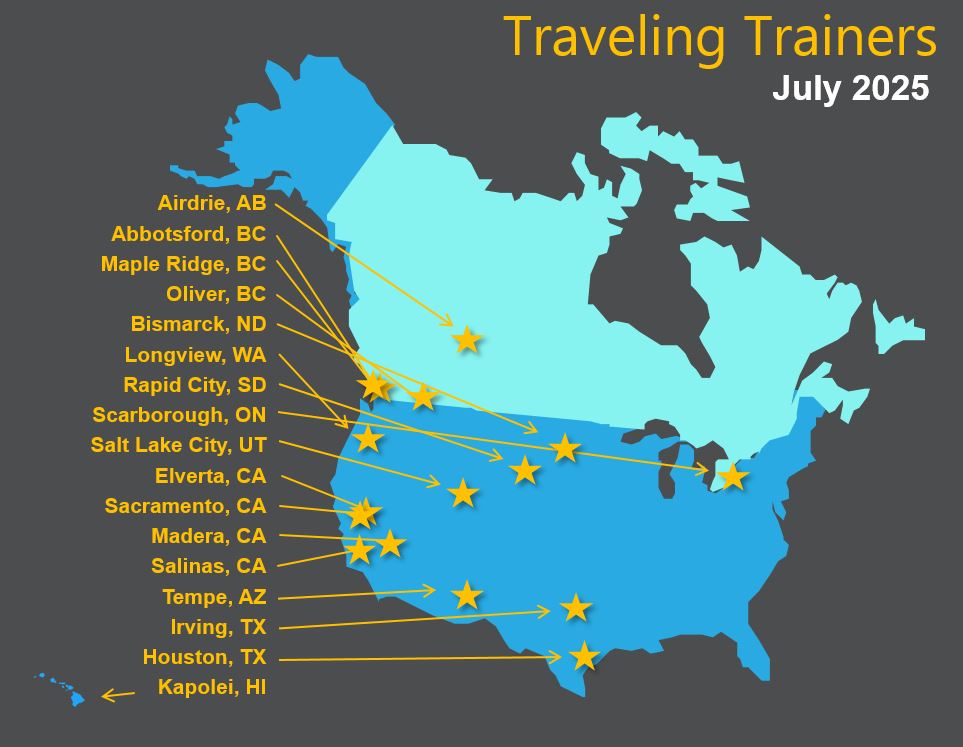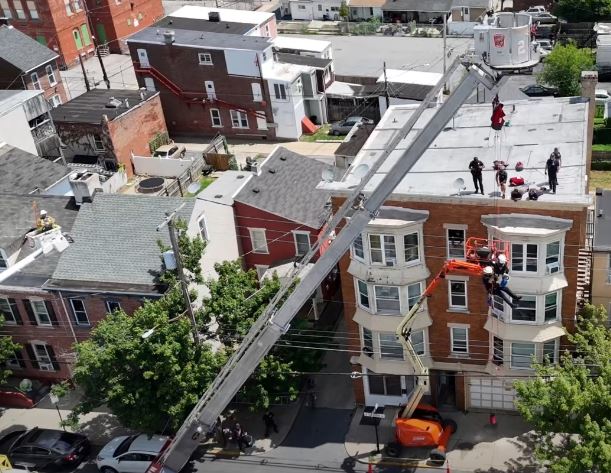
The IVES Update Newsletter is a highly informative monthly e-newsletter. It contains up-to-date industry information, regulatory updates, stories from the field, upcoming program dates, What’s Wrong With This? photos, incident reports, our interactive “Ask Bob” question and answer column, new product details and much more.
Whether you're interested in forklifts, mobile elevating work platforms, loaders or excavators – we’ve got you covered. Want to receive it directly to your inbox? Sign up for our IVES Update e-Newsletter!
Year:

Could you still pass your driving test today? Over time, complacency and bad habits dangerously dull our risk awareness. In materials handling, this can spell disaster.
Annually, forklift accidents in the UK cause around 1,300 serious injuries, impacting 25 people every week with potentially life-altering consequences. The stakes are simply too high to ignore.
So how do we ensure that safe practice is followed every day?
Managers: the frontline of safety
Managers should play a critical role in materials handling operations and their proactive stance is essential for minimising incidents and fostering a culture where safety is paramount. But how can they truly safeguard their teams and businesses?
When it comes to maintaining standards, while operator training is a compliance requirement for all UK businesses using MHE, this typically occurs every three to five years, allowing unsafe practices to develop in the interim.
Managers must ensure standards are upheld consistently, staying vigilant to the risks, employing continuous monitoring and leveraging innovations like truck telematics and CCTV analysis to enforce safety practices every day.
Equip managers with essential skills
To maintain high safety standards, managers must identify risks in real time, taking immediate action before problems escalate. Success hinges on understanding, quite simply, what’s safe and what’s not.
Those overseeing MHE activity don’t need to be certified forklift operators themselves, but they must be able to spot unsafe habits before accidents happen.
Providing managers with the skills and knowledge to uphold safety is crucial, so empowering them via specialist training programmes is essential to equip them to identify and reduce risk.
The business benefits of taking action
1. Building a safety culture: by ensuring that safety is ingrained in daily activities, trained managers set and enforce vital standards, protecting teams and operations.
2. Protecting productivity and profitability: by addressing bad practices early, managers prevent accidents, costly damage, disruptions and delays. This proactive approach safeguards both the workforce and the bottom line.
3. Ensuring legal compliance: skilled managers help businesses meet legal standards, like the UK’s Approved Code of Practice for Rider-Operated Lift Trucks (L117), which requires that, ”supervisors have enough training and knowledge to recognise safe and unsafe practices”.
Not only do compliant operations keep you on the right side of the law, they also help to protect your company’s reputation.
In summary, the role of managers in upholding MHE safety is critical. A proactive approach can drive significant improvements in safety culture and operational efficiency, but it requires managers to be able to recognise the everyday risks.
Relevant training for your supervisory staff is a direct investment in safety, compliance, and efficiency. By providing them with the necessary knowledge and skills, you will help your managers to address issues and understand the severe consequences of unsafe practices. Empower them to take decisive action, and they can help you protect your people, your business, and its future.
Act now—don't wait for a costly accident to happen.
Source: Forklift Action Alberta employer Delta Land Co. Inc. has been fined $350,000 after one of its workers died in the workplace.
Alberta employer Delta Land Co. Inc. has been fined $350,000 after one of its workers died in the workplace.
The incident happened Nov. 8, 2022 at a resort development site at Gull Lake.
The worker died after being caught between the boom and a grounded bucket while performing maintenance on an excavator.
The pleaded guilty on June 30 in the Red Deer Court of Justice to “one count under the Occupational Health and Safety (OHS) Code for permitting a worker to remain within range of a moving part of powered mobile equipment,” said the Alberta government.
Section 28 (3) of the codes reads: “If a worker could be caught between a moving part of a unit of powered mobile equipment and another object, an employer must (a) restrict entry to the area by workers, or (b) require workers to maintain a clearance distance of at least 600 millimetres between the powered mobile equipment and the object.”
The fine is inclusive of a 20 per cent victim fine surcharge. The Crown withdrew six other counts.
Both the company and the Crown have up to 30 days to appeal the conviction or penalties.
“Alberta’s OHS laws set basic health and safety rules for workplaces across the province,” said the Alberta government. “They provide guidance for employers to help them ensure their workplaces are as healthy and safe as possible while providing rights and protections for workers. Charges under OHS laws may be laid when employers fail to follow the rules results in a workplace fatality or serious injury.”
 Q: We are training on Aerial Boom Lifts and have many different sizes.
Q: We are training on Aerial Boom Lifts and have many different sizes.
For training on each piece of equipment, is a practical evaluation required or is familiarization between them sufficient?
A: You are correct that you can complete one evaluation (I suggest using the most complicated one (most bells and whistles, etc.) to be the one to work with and evaluate them on) and then you can familiarize them after that.
Don’t forget to use our familiarization packets so you have a way to document what it was done on the specific machines.
If the machines are similar to ones they were trained on and the controls are not different or used in a different manner, you may be able to get by without doing anything.
If in doubt, use the simple familiarization evaluation on the inside of the familiarization folder.

 "I loved that the program taught how to teach and not just the material."
"I loved that the program taught how to teach and not just the material."
Leonardo C, Premium Combo Trainer Certification
"Very comprehensive and well presented. This is my second IVES Trainer certification and I remain impressed."
Jarred V, MEWP Trainer Certification
"I very much enjoyed this program. I felt the information provided was clear and detailed. Thank you for providing such a great class and resource to further my skills as a trainer."
Sierra F, Express Standard Forklift Trainer Certification
copyright © IVES Training Group 2022 All Rights Reserved.